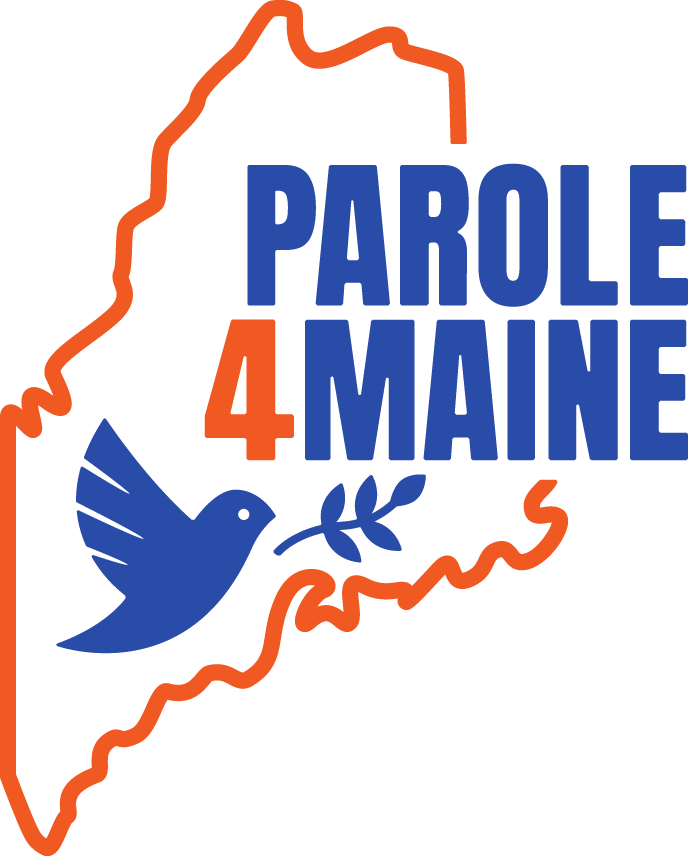Asserting the Voices of All Crime Survivors
by Lane Lewis Israeli and Leo Hylton
04/07/2023
Shining Light on Humanity
Asserting the Voices of All Crime Survivors
Maine’s criminal legal system harms everyone, regardless of which side of the bars you’re on. This month I’m using my column space to uplift and honor the voice of Lane Lewis Israeli, one of the numerous survivors of violence who spoke in favor of LD 178 (“the Parole Bill”) at the State House last month. What follows is the powerful voice of a trauma-healing colleague, survivor, and friend.
On March 13th, the Maine Legislature’s Criminal Justice and Public Safety Committee held a hearing to receive public input on LD 178, An Act to Support Reentry and Reintegration into the Community. As a survivor of domestic and sexual violence, I have given careful thought to my views on the complex issue of parole. My life experiences, values, and relationships with incarcerated individuals in Maine all inform my support of criminal justice reform, and I felt compelled to share public testimony in favor of the bill.
In the days leading up to the hearing, I was wracked with anxiety and the intense feeling of vulnerability that comes with sharing such a personal perspective in a political space, let alone doing so in under three minutes. So I chose to write my testimony and read it aloud to the committee. I wasn’t the only one; many crime survivors spoke in support of the bill. We went beyond our comfort zones, named our most painful experiences, and shared our reasons for supporting parole. It isn’t easy to articulate such a controversial stance, as many struggle to understand how we could advocate for anything other than endless suffering for those who harmed us. Nevertheless, we spoke our truth, knowing that if we didn’t our voices would be exploited to further someone else’s political agenda.
The hearing lasted almost eight hours, and as it drew to a close I listened with empathy and compassion as other survivors shared their stories and voiced their opposition to the bill. Rather than seeing them as an opposing force, I viewed them as another group of voices informing a nuanced conversation around criminal justice reform. As I listened, I wished for their peace and healing, knowing all too well the toll that trauma takes.
Despite the overwhelming number of crime survivors who spoke and wrote in support of parole, it seemed our voices were drowned out by those of the relatively few dissenters. The committee members opposing parole selectively highlighted the stories of crime survivors who shared their views. It was disheartening to witness the erasure of voices that deserved to be acknowledged, especially given the courage needed to speak out on such a personal and contentious issue. Today I am reasserting those voices.
That day, a member of the committee posed a troubling question: Which group of survivors should the committee listen to? This binary framing of crime survivors is a dangerous oversimplification that fails to recognize the rich diversity of experiences, opinions and needs that exist among us. For example, crime survivors and those impacted by mass incarceration are not two distinct groups. In my experience, first as a domestic-violence-survivor advocate, and later as an advocate working with survivors of sexual violence, I have learned there is significant overlap between the two groups. Many survivors have loved ones who are incarcerated, are themselves incarcerated, or have been incarcerated in the past. Tragically, some of the survivors I worked with also experienced sexual violence while they were incarcerated. This experience is supported by data from the ACLU showing that nearly 60 percent of people in women’s prisons nationwide (and as many as 94 percent in some women’s prisons) have a history of suffering physical or sexual abuse before being incarcerated. Thus, for many abuse survivors, incarceration is a detriment to their healing, not a support.
This highlights just one of the ways we fail to see the diversity of crime survivors when we oversimplify the narrative for the sake of political expediency. This diversity itself convinces me of the need for legislation that gets us as close as possible to the ideal in which we can respond to crime survivors’ experiences and needs on a case-by-case basis. For me, this option is parole. Withholding parole limits the choices and opportunities available to all survivors in favor of those who do not support parole.
Nothing feels truer to me than a statement I recently read by The New York State Downstate Coalition for Crime Victims. It ends by saying, “As a result of surviving harm, many people experience periods of great darkness. But victims do not want a system to cater only to the darkness. They want a system that helps bring them and others to a better place.”
While I have known great darkness, I have also known healing and hope, and I believe a survivor-sensitive parole process can be implemented, together with other programs, that will support healing and hope for all of us. That is why I support LD 178.
If you would like to learn more about parole and LD 178, go to www.parole4maine.com or reach out to info@parole4maine.com.
Leo Hylton is a PhD student at George Mason University's Jimmy and Rosalynn Carter School for Peace and Conflict Resolution, currently incarcerated at Maine State Prison. His education and work are focused on Social Justice Advocacy and Activism, with a vision toward an abolitionist future. You can reach him at: Leo Hylton #70199, 807 Cushing Rd., Warren, ME 04864, or leoshininglightonhumanity@gmail.com.
Lane Lewis Israeli is a passionate advocate for survivors of domestic and sexual violence. As a survivor herself, she has dedicated her life's work and education to supporting and empowering survivors in ways that go beyond the criminal legal system. Lane holds a master's degree in Trauma-Informed Restorative Practice from George Mason University's Jimmy and Rosalynn Carter School for Peace and Conflict Resolution.
